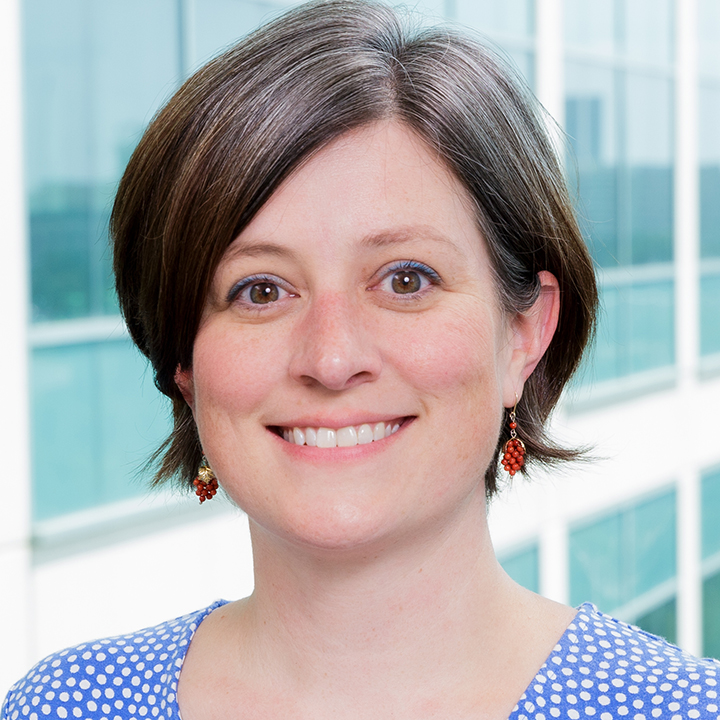Kimberly Reynolds, Ph.D.
- Assistant Professor, Lyda Hill Department of Bioinformatics | Biophysics
- SWAT Outstanding Educator Award in the Graduate School of Biomedical Sciences

“Follow the path you really want, not the one that is more convenient for everyone else.”
Contributions to STEMM
Dr. Reynolds is a scientist and educator in the Lyda Hill Department of Bioinformatics, where she works “to understand how individual genetic changes (mutations) affect organism-level behavior, appearance, and growth (phenotype),” she said. Specifically, she seeks to uncover “how genotype encodes phenotype. My lab works with the simple, unicellular bacterium E. coli. This experimentally powerful model system enables us to construct libraries of thousands of mutations and precisely quantify their effects on bacterial growth.”
“By combining high-throughput, quantitative, experimental measurements with computational models and statistical analysis of genomic data, we aim to create predictive models for mutational effects,” she said.
“The ability to predict the effects of mutation on bacterial growth would streamline antibiotic discovery, enable the engineering of industrially useful metabolic pathways, and deepen our fundamental understanding of microbial evolution.” Further down the line, she hopes these “efforts will provide a framework for understanding and predicting mutational effects in more complex organisms, including humans.”
Early Influences
“I was fortunate enough to attend a public magnet high school in the biomedical sciences. It let me get involved with science at a young age,” Dr. Reynolds said. She built off this foundation by seeking out opportunities in laboratories. “Since 15, I've worked in labs – stacking pipette tips, washing dishes, making basic reagents, and then later doing my own experiments. I still remember the first time I saw a computer visualization of a protein, and I knew I needed to learn to code, not just pipette.”
Taking Risks
As a high school student, Dr. Reynolds started learning code. “I could build a computer and had learned some shell scripting,” she said. “Then I went to college. I found my first formal computer science courses deeply intimidating. There were very few women. I failed my intermediate programming class and was completely crushed. In hindsight, it was one of the biggest growing moments in my life. I worked through it and finished out two more semesters of computer science coursework with A's and B's.”
Dr. Reynolds used this challenge as a learning opportunity, realizing that “if you are trying to do something hard and really push the boundaries of what you know, you will sometimes fail and that is fine, even expected. Just keep going.” She advised aspiring scientists to keep it simple.
View Academic Profile“Strive to get some hands-on experience to see what you really enjoy doing, where you like spending time, and to build your self-confidence.”